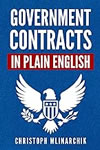Frederick J. Fisher, JD, is the President of Fisher Consulting Group, Inc. and was the Founder of E.L.M. Insurance Brokers, a Wholesale & MGA facility specializing in Professional Liability and Specialty Line risks. He is a Member of the Editorial Board for Agents of America; a Faculty Member of the Claims College, and Member of the Executive Council, School of Professional Lines sponsored by the Claims & Litigation Management Association and a course designer and webinar Instructor for the Academy of Insurance.
Consulting - Since his career began, Mr. Fisher focused on one vision: providing financial security to the client. The result was a successful 40 year career in Specialty Lines Insurance which have resulted in substantial cost savings for clients. He provides consulting and audit services in all areas of Professional Liability, D&O, and EPLI Insurance. This includes Processes, Underwriting, Claims, and Product Distribution.
Background - In 1975, Mr. Fisher began his career on the service side, as an Independent E&O claims adjuster. In 1982, he bought the Company and increased annual billings by 400% in only 4 years. In 1995, he formed what is now known as ELM insurance Brokers, a firm that has acted as an MGA and Wholesale Broker of Professional Liability Insurance and Specialty Lines. From nothing, the firm grew rapidly to a $30 Million dollar facility when sold in 2008.
Author and Speaker - Frederick Fisher has lectured extensively on professional liability issues since 1978, and authored over 64 articles in trade journals and periodicals. He is the author of BROKER BEWARE, Selling Real Estate within the Law. Mr. Fisher remains a Special Materials Expert for several RPLU courses and is the Senior Technical Advisor for The Professional Liability Manual, first published by the International Risk Management Institute in 1990. He has taught over 100 CE classes and lectures. Mr. Fisher can be reached at: fjfisher@fishercg.com
View Frederick Fisher's Expert Witness Profile.
By: Frederick Fisher, JD, CCP
The article was consistent as to the general duties that have been decided throughout most of the United States. The article stated that the a duty of an insurance broker is generally limited. The general standard requires the agent / broker to use reasonable care and diligence to procure the coverage requested by client. Most courts have examined the scope of a broker obligations and have concluded that the duty does not include recommending specific types or limits of coverage.
By: Frederick Fisher, JD, CCP
The basis for many of the “absolute” exclusions is that the excluded exposure is supposed to be covered under other policies or not at all as to the insured’s conduct. In other words, if you have an E&O policy, insureds should not look to the policy to cover them for typical directors and officers exposures, employment practices liability exposures, or even technology exposures
By: Frederick Fisher, JD, CCP, and Louie Castoria, Esq
Insurance defense attorneys inhabit a confusing world in which even the "routine case" may need an expert witness for trial or a consultant to help with an early evaluation for settlement purposes. The legal precedents, regulations, and such don't often say what the profession's standard of care in the community is in the exact situation.
By: Frederick Fisher, JD, CCP
Rarely are clients immediately aware of the wrongful or erroneous actions of the "professional" they trusted to perform specific duties or services; mainly because "professional" acts or errors do not or only seldom cause immediate injury. A "professional's" wrongful acts or errors may not manifest in client injury until long after the act is perpetrated or the error is committed.
By: Frederick Fisher, JD, CCP
Two mutually exclusive goals are beginning to result in apparently unintended results within the executive and professional liability markets. The quest for underwriting profits and the desire to develop clear (to whatever extent possible) coverage language have rapidly changed the coverage landscape within these two lines of coverage.
By: Frederick Fisher, JD, CCP
The 35-year history of the claims-made policy form has not brought it stability or standardization. In fact, claims-made forms have begun to incorporate with increasing frequency additional and exclusionary language that is unfavorable to the policyholder.
By: Frederick Fisher, JD, CCP
The claims audit is the anathema of day-to-day claim operations. Nothing is more disruptive. Yet, if properly defined, nothing is more informative and helpful in improving a claim management program. This article will examine the need for a regular auditing program and provide a recipe for a three-dimensional approach to the process in order to maximize the accuracy of the audit results.
By: Frederick Fisher, JD, CCP
Professional liability claim management is a unique area of insurance claim responsibilities. Indeed, there are as many ways to supervise, manage, and investigate professional liability claims as there are different lines of professional liability coverage. This article will address the key issues that are involved in the investigation and resolution of nonmedical and non-D&O claims under professional liability policies.
Frederick J. Fisher, JD
This is an indispensable guide for insurance professionals navigating claims-made policies. This comprehensive book explores the evolution and critical aspects of these policies that have transformed the insurance landscape. This book serves as a manual for industry professionals, brokers, underwriters, and claims adjusters, teaching them how to navigate and explain claims-made policies. It also empowers policyholders by clarifying their rights and responsibilities, helping them avoid coverage gaps and denial scenarios.
Frederick J. Fisher, JD


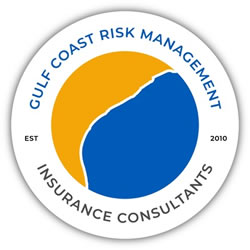
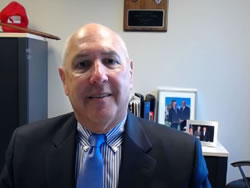








 Jeffrey D. Diamond specializes in Insurance Coverage Disputes and Litigation. He has established his law firm as one of the premier Insurance Coverage law firms in the Metro Atlanta area on behalf of policyholders, as well as throughout the State of Georgia and, as he was initially admitted to the State Bar of California in 1978, he serves policyholders in California, as well.
Jeffrey D. Diamond specializes in Insurance Coverage Disputes and Litigation. He has established his law firm as one of the premier Insurance Coverage law firms in the Metro Atlanta area on behalf of policyholders, as well as throughout the State of Georgia and, as he was initially admitted to the State Bar of California in 1978, he serves policyholders in California, as well. 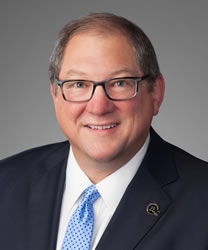 Scott S. Margraves, CIC, has over 32 years of Commercial Property and Casualty Insurance experience. He is the Principal Consultant and Founder of GCRM. Mr. Margraves is well-versed in the placement of insurance policies from an insured's perspective. As a front-line producer, he weathered five major hurricanes, three “five-hundred-year floods” and multiple catastrophic fire claims.
Scott S. Margraves, CIC, has over 32 years of Commercial Property and Casualty Insurance experience. He is the Principal Consultant and Founder of GCRM. Mr. Margraves is well-versed in the placement of insurance policies from an insured's perspective. As a front-line producer, he weathered five major hurricanes, three “five-hundred-year floods” and multiple catastrophic fire claims.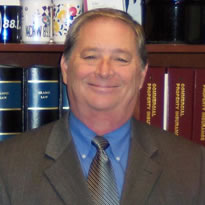 Mr. Beringer is the Principal of Beringer & Associates (B&A) and Liability Program Management (LPM). He is an approved consultant by the A.M. Best organization, since 2006, for claims, liability, and insurance program management, including matters involving construction, OCIP, TPA, JPA, Captives, Memorandum of Coverage, and insurance coverage analysis. The Cayman Island Monetary Authority approved Mr. Beringer as a licensed captive owner in 2002 for Segregated Portfolio Company Creative Solutions, SPC.
Mr. Beringer is the Principal of Beringer & Associates (B&A) and Liability Program Management (LPM). He is an approved consultant by the A.M. Best organization, since 2006, for claims, liability, and insurance program management, including matters involving construction, OCIP, TPA, JPA, Captives, Memorandum of Coverage, and insurance coverage analysis. The Cayman Island Monetary Authority approved Mr. Beringer as a licensed captive owner in 2002 for Segregated Portfolio Company Creative Solutions, SPC.

